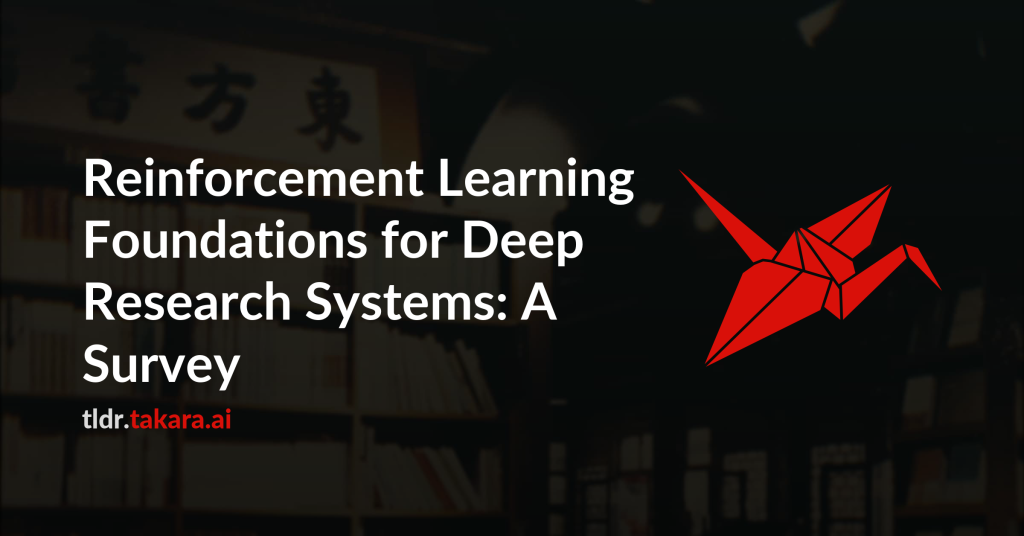Deep research systems, agentic AI that solve complex, multi-step tasks by
coordinating reasoning, search across the open web and user files, and tool
use, are moving toward hierarchical deployments with a Planner, Coordinator,
and Executors. In practice, training entire stacks end-to-end remains
impractical, so most work trains a single planner connected to core tools such
as search, browsing, and code. While SFT imparts protocol fidelity, it suffers
from imitation and exposure biases and underuses environment feedback.
Preference alignment methods such as DPO are schema and proxy-dependent,
off-policy, and weak for long-horizon credit assignment and multi-objective
trade-offs. A further limitation of SFT and DPO is their reliance on human
defined decision points and subskills through schema design and labeled
comparisons. Reinforcement learning aligns with closed-loop, tool-interaction
research by optimizing trajectory-level policies, enabling exploration,
recovery behaviors, and principled credit assignment, and it reduces dependence
on such human priors and rater biases.
This survey is, to our knowledge, the first dedicated to the RL foundations
of deep research systems. It systematizes work after DeepSeek-R1 along three
axes: (i) data synthesis and curation; (ii) RL methods for agentic research
covering stability, sample efficiency, long context handling, reward and credit
design, multi-objective optimization, and multimodal integration; and (iii)
agentic RL training systems and frameworks. We also cover agent architecture
and coordination, as well as evaluation and benchmarks, including recent QA,
VQA, long-form synthesis, and domain-grounded, tool-interaction tasks. We
distill recurring patterns, surface infrastructure bottlenecks, and offer
practical guidance for training robust, transparent deep research agents with
RL.

